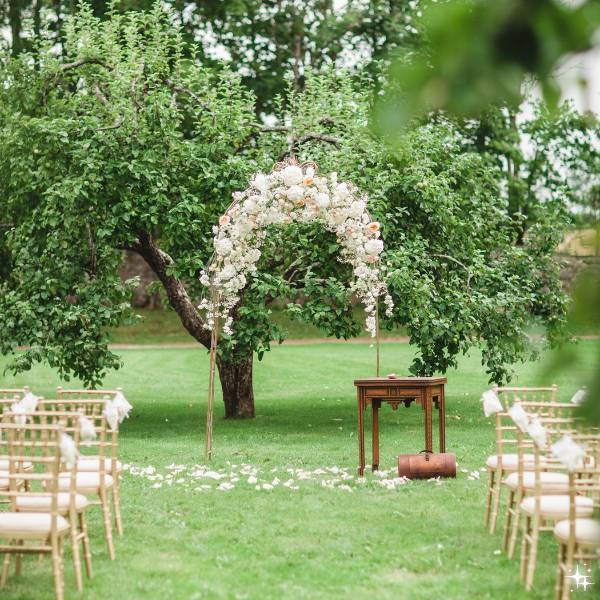Do Wedding Planners Get Commission From Vendors? Exploring the relationship between wedding planners and vendor commissions. How does the commission model between wedding planners and wedding vendors affect your wedding? Understanding the financial agreements between planners and vendors.
Do Wedding Planners Get Commission From Vendors? The short answer is yes, but not all the time. Some don’t receive any at all. Every wedding planner has a different set-up or business model with wedding vendors. Transparency is important. Ethical wedding planners operate with transparency, clearly communicating their business model to couples from the start.
Hopping on the train of planning involves navigating a maze of decisions, considerations, and the occasional myth or two. One common question that often arises is whether wedding planners earn commissions from the vendors they recommend.
Today, we’re delving into this intriguing aspect of the wedding world to shed light on the relationship between wedding planners and vendor commissions. Let’s demystify the process and understand how it impacts your wedding planning experience.

Do Wedding Planners Get Commission From Vendors?
Commission Basics
Yes, some wedding planners may indeed receive commissions from vendors. This commission is usually a percentage of the total amount the couple spends with that specific vendor. At times, it can be a flat fee for specific packages.
Some wedding planners charge clients a flat fee for their services, regardless of the vendors they recommend or hire. This fee structure is transparent and ensures that the planner’s compensation is not tied to the vendors’ pricing or services.
In some cases, wedding planners may charge clients a percentage of the total wedding budget as their fee. This fee structure may incentivize planners to recommend higher-priced vendors, as it directly correlates with the overall wedding expenses.
Wedding planners may receive referral fees or commissions from vendors for recommending their services to clients. These fees are typically paid by the vendors to the planner as compensation for bringing them business. While referral fees can be a source of income for planners, they may also raise questions about the impartiality of the planner’s recommendations.
It’s important to note that not all wedding planners operate on a commission-based model. Some don’t receive any kickback, commission, or tip at all.
Some organizations like The Wedding Planners Institute of Canada have a code of ethics in which their members do not receive any commission or kickbacks from vendors. They have a list of wedding planners that is an active member of their organization so you can choose the best wedding planner match for you.
Transparency
Ethical wedding planners operate with transparency, clearly communicating their business model to couples from the start.
Some planners may choose to work on a flat fee, while others incorporate a commission structure. The key is open communication to ensure couples understand the financial dynamics.
Vendor Relationships
Wedding planners often build strong relationships with vendors based on trust, reliability, and shared commitment to creating memorable events. The commission, if earned, is a reflection of the ongoing collaboration between the planner and the vendor.
There is nothing wrong with receiving commissions from vendors. The “wrap-around” is some vendors “tip” the wedding planner after an event as a “token” of appreciation.
Going back to what is mentioned earlier, transparency is important. If you feel that commission disclosure is important to you, you can ask the wedding planner if they do indeed get a commission.

The Pros and Cons: Navigating the Commission Conundrum: Do Wedding Planners Get Commission From Vendors?
Pros of Commissions:
Incentive for Recommendations: Commissions can provide a financial incentive for wedding planners to recommend high-quality vendors. This motivation ensures that planners strive to connect couples with professionals who align with their vision, budget, and expectations.
They are most likely held accountable together as wedding planners and vendors as both their reputations are riding on the fact that they are receiving clients and commissions from each other. This is something that they have built through the years and will protect to ensure longevity in the business.
Cost Efficiency: In some cases, vendors may offer discounted rates to wedding planners, knowing that they will earn back a percentage through commissions. This can potentially result in cost savings for the couple.
You can essentially get a better price since the vendor and wedding planner already have a “working” relationship.
Cons of Commissions:
Potential Bias: The concern often raised is whether the commission structure creates a bias in the recommendations. Couples may wonder if planners prioritize vendors based on financial gain rather than the best fit for the event.
Word to the wise: just because the wedding planner suggested vendors, doesn’t mean you won’t need to vet them. You can vet and investigate further and also ask the same questions you’ve asked the wedding planner. You can still do your own digging and investigation.
Transparency Challenges: If not communicated clearly, the commission structure can create transparency challenges. Couples should feel confident that their wedding planner’s recommendations are driven by genuine trust in the vendor’s capabilities.
However, it is important to remember that there is no one clear “deal structure” – if you opt to know these things, you might not fully understand the structure and setup. Note that every vendor relationship is different. Be prepared to not totally “get” the set-up and what’s happening.

How to ask the commission question?
ASK DIRECT QUESTIONS: Don’t hesitate to ask your wedding planner about their business model, including how they are compensated. Clear communication builds trust and ensures that both parties are on the same page.
CRITERIA FOR JUDGING AND SELECTION: Understand how your wedding planner selects vendors. Ask about their criteria for recommendations, ensuring that the focus is on creating a cohesive and exceptional wedding experience.
EXPLORE ALTERNATIVES: If you have concerns about potential biases, discuss alternative compensation structures with your wedding planner. Some planners offer flat fees or hourly rates, providing a different approach to financial arrangements.

In the world of wedding planning, transparency is the compass that guides couples and planners through the intricate details of the journey.
While some wedding planners do earn commissions from vendors, it’s crucial to recognize that ethical professionals prioritize your vision, needs, and satisfaction above all else.
Even for our website, we do receive commission from qualifying purchases from brands and stores that we have partnered with because we know and trust that their services and products will be beneficial to you. As you can see, we always put disclaimers on each article to let you know that we have partners that you might want to consider.
There is nothing wrong with receiving commissions. As we know business models will vary across the board.
This is why vetting your wedding planner is essential since it all starts with them. If you trust your wedding planner enough, whether she gets a commission or not, you can be comfortable that your budget is allocated fairly and your wedding will be amazing.







